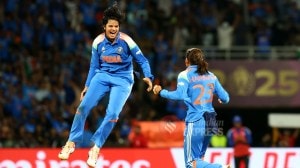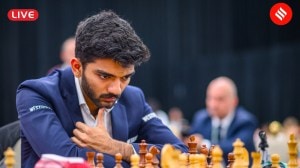Stop this politicisation of the iftar
The Capital’s iftar parties have a life of their own. True, this year the scene was somewhat muted, with the president, the prime minis...

The Capital’s iftar parties have a life of their own. True, this year the scene was somewhat muted, with the president, the prime minister and the leader of the opposition deciding not to hold their iftar evenings. Nevertheless, we did have fairly well-publicised iftars organised by the minister of civil aviation, the chief minister of J&K and a few others.
That Ramzan is party time is the impression widely held. Speak about it and one envisions umpteen stalls dispensing kebabs, sevaiyan, halim, pakodas, kachalu, khajla, phenis, and so on. But there are even bigger stalls selling political ideology to buy votes! What is very interesting in some Delhi iftars is that most of the invitees are non-Muslim and the few Muslims who participate rarely observe the fast.
What hurts particularly is the tokenism here, displayed by those who otherwise regard Muslims as a bunch of illiterate and ghettoised men and women. Barely is the event over and they are back at their favourite activity: using the Muslim community as a punching bag. Take the BJP. Even as it spares no effort in painting the Indian Muslim as anti-national, it seeks to mellow that animosity by throwing lavish iftar parties.
The iftar as a political institution began some time in 1975, after the Turkman Gate riots erupted in Delhi during the Emergency. It was done at the behest of the late Congress leader, H.N. Bahuguna, to appease the Muslims of Delhi who were furious over the treatment meted out to their community. Indira Gandhi was quick to see its potential. She always maintained that iftars helped create understanding between the people of various communities.
But, over the years, it got transformed. Today, iftar venues in Delhi showcase the mian bhais of Delhi’s glitterati. The food, too, has been adapted to the dominant tastes. So you have Amritsari fish with the sheermal and mutton qorma, or even the occasional idli and dosa! At H.D. Deve Gowda’s first iftar party as prime minister, his factotums insisted that a few vegetarian items favoured by Deve Gowda be included. So there was sambar, dosa and bisi beli bhat on that occasion!
Things have got increasingly impersonal and mechanical over the years — to the extent that the host may not even know the invitee, because the invitations have been handled by another department all together!
All this militates against the spirit of the iftar. Basically, roza is a religious ritual and there are certain tenets to be followed as far as the roza iftar is concerned. Although no dishes are specified, in an authentic iftar the emphasis is on a wholesome meal consisting of kachalu (fruit mixture), pakodas, dates, and so on. Since Islam believes in sharing, it is recommended that iftar be shared with the members of the family, friends and more so with the less privileged.
But Delhi’s iftars make a mockery of this. In a recent iftar thrown by the BJP at its party headquarters, the moment the time of breaking the fast approached, thousands of people fell on the food and within seconds there was nothing for the poor rozedars, or those who had kept the fast.
Talk to people like Khwaja Iftekhar Ahmed, a pious rozedar, and you realise how much they hate this politicisation of the iftar. Ahmed points out that more than 90 per cent people at such functions do not observe the fast. Besides, the whole idea of the fast is nullified if the iftar is organised using money acquired by dubious means, like bribes for instance. He, therefore, wants this vulgarisation of an august ritual to end.
And he is right. Ramzan, the ninth month in the Islamic calendar, is considered the most pious month by the believer as it was then that the Holy Koran was revealed to the last Prophet, Hazrat Mohammed. There is no room in it for lies, hypocrisy and politics.


- 01
- 02
- 03
- 04
- 05





























